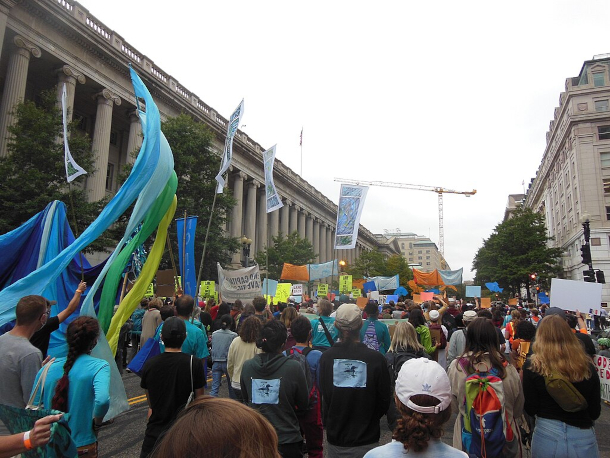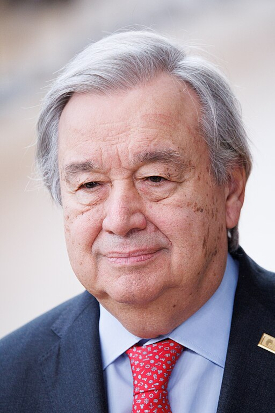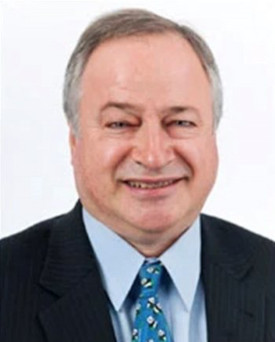UN Climate Ambition Gap
Air Date: Week of November 14, 2025
This year’s COP is being held in Brazil, a country whose famous rainforests are plagued by deforestation. (Photo: Courtesy of Miriam Jackson)
The 30th UN climate talks are underway in Belém, the “gateway to the Amazon” in Brazil, but national pledges are still way off track from what's needed to halt the quickening pace of global warming. Longtime climate talk observer and Senior Associate for E3G Alden Meyer is at COP30 and talks with Host Paloma Beltran about efforts to close that gap and the power of the talks to focus minds on the emerging reckoning.
Transcript
O’NEILL: It’s Living on Earth, I’m Aynsley O’Neill.
BELTRAN: And I’m Paloma Beltran.
This year’s UN climate talks are underway in Belém, the “gateway to the Amazon” in Brazil. And with nations’ pledges to reduce greenhouse gas emissions way off track from where they need to be to meet key climate goals, frustrations have boiled over.
[SOUNDS OF PROTEST]
BELTRAN: On the second day of COP30, protesters led by Indigenous peoples including the Tupinambá diverted from a government-approved protest route and stormed past security into the COP30 venue.
[SOUNDS OF PROTEST]
BELTRAN: An Indigenous leader identified by the Guardian as Cacique Gilson wore a blue feathered headdress and spoke during the protest.
[INDIGENOUS MAN SPEAKING]
VOICEOVER: We don’t eat money. We want our territory free. But the business of oil exploration, mineral exploration, and logging continues.
BELTRAN: Longtime climate talk observer and Senior Associate for E3G Alden Meyer is there at this COP and witnessed some of the commotion.
MEYER: I think it just shows you know that you can't keep the outside concerns and passions of people from affecting the process here. This was a particularly dramatic way of doing that, and just a symbol of how much the outcome of these talks means to people because they see how it's directly affecting their lives.
At this year’s COP, countries are negotiating a wide range of issues reflecting often competing interests. (Photo: Courtesy of Miriam Jackson)
BELTRAN: Indigenous communities play crucial roles in protecting ecosystems around the world. Brazil is establishing an initiative called the Ethical Stocktake to call attention to the disproportionate effect that the climate crisis is having on marginalized communities, including Indigenous people. How could this shape COPs going forward?
MEYER: Well, it's a very interesting process. It's been led by Marina Silva, the Environment Minister of Brazil, as well as her counterpart, the Indigenous Minister of Brazil, has been very engaged in this, Sônia Guajajara, and they have held a number of dialogues and meetings around the world in this Ethical Stocktake process, engaging not just Indigenous communities, but scientists, artists, poets, ethicists, people from all walks of life, to try to say, what is our moral responsibility to impacted people, to future generations, to achieve the kind of outcomes we need in this process? They have provided an input to this process. It's not a negotiated input. It was developed based on the consultations they had around the world over the last year or so. But it really is a voice for morality and ethics and the rights of impacted people, both now and in the future, and I think it is making a difference in the way that they're perceived. Brazil also, the presidency has made an unprecedented effort to engage Indigenous communities and people in this process in terms of observer status, participation in dialogues, et cetera. You know, it's still not enough. It's not everything the Indigenous people constituency in this process would like to see, but I think it is a step forward, and I think it's going to be pretty hard for future COP presidencies to try to roll that back and do less to reflect the interests of those communities in this process.
Sonia Guajajara leads the Ministry of Indigenous Peoples in Brazil. She worked on the Global Ethical Stocktake, an initiative to prioritize the needs of marginalized people in the fight against climate change. (Photo: Valter Campanato, Agência Brasil, Wikimedia Commons, Public Domain)
BELTRAN: So COP is being hosted in Brazil this year, which is an interesting dynamic. On the one hand, Brazil has made efforts to preserve its rainforest ecosystem, but deforestation continues, and the nation is also exploring the possibility of drilling for oil in the Amazon region. How is Brazil navigating its place at this year's climate talks?
MEYER: Well, this is a sort of inherent contradiction in a lot of countries, including some of the most recent hosts of the COPs. On the one hand, you're seeing a long-term commitment to transitioning away from fossil fuels. We have to get to net zero emissions by mid-century. That's not that far away anymore. On the other hand, you see short term economic development and energy security imperatives which are driving not just Brazil, but many other countries to continue to develop and produce oil, coal and gas, despite their long-term commitments to phasing out those energy sources. And of course, here in Brazil, it's not just oil drilling. You see dramatic expansion of beef production, of soybean production, which are putting strains on the rain forest, on the Amazon. This is true in other countries as well. I think the US is the leading developer and exporter now of fossil fuels and in terms of projected development, particularly around liquefied natural gas. You also see that with other producing countries in the north, like the UK and Norway and Canada and Australia. And of course, you're seeing countries in Africa and elsewhere moving to exploit their fossil fuel resources. So this is sort of an inherent contradiction. We're trying to manage a transition away from what has powered the Industrial Revolution and fired up economies over the last century, and we're trying to do it in an unprecedentedly rate of speed and short amount of time to make that transition. So, there are strains and contradictions in the system. I don't think it has impacted the ability of the Brazilian presidency and their very experienced team of diplomats to manage this process. They're doing a very skillful job. But just like any other country, there are different forces at play, and there are very powerful interests in Brazil, in the energy sector, in the agriculture sector, in the mining sector, that don't want to change the current rules and ways of doing business because that would impact their business models and their profitability.
BELTRAN: And, Alden, I do want to ask you, what's been the presence of the fossil fuel industry at this year's climate talks?
MEYER: Well, the fossil fuel industry has been in this process since the very beginning. They are definitely here in force. They are represented both in terms of investor-owned companies like the big petro chemical companies and oil producers and coal producers, but of course, they're also represented by many of the state owned companies that produce coal, oil and gas and the exporting countries, particularly the Arab region, but others, so they are definitely present. There is going to be a big fight over how specific we can get on implementing the consensus decision from two years ago on the need to transition away from fossil fuels in the energy sector. At that decision in Dubai, at COP 28, we were able to get specific commitments to triple production of renewable energy by 2030 and to double the rate of energy efficiency improvement from around 2% a year to 4% a year by 2030, but we were not able to get any benchmarks or quantification of the transition away from fossil fuels. So there are discussions here about the need to set up a process and a roadmap forward on how to implement that decision. Brazil is talking with people about that. Colombia has put forward a proposal on this. Other countries are talking about it. But the more specific you get on that, the more vociferous the opposition will be from both the privately owned companies and the oil, gas and coal producing countries. So talk to me after the end of next week, and we'll see what we get out of here. But this is definitely going to be a very live issue over the next 10 or 12 days.

Meyer says that the COP process is a mirror to what happens in each individual country. He believes that, in order to make change, people must make their interests known in their home countries. (Photo: Frypie, Wikimedia Commons, CC BY-SA 4.0)
BELTRAN: Decade after decade, countries have promised to address the climate crisis, but scientists say that limiting global temperature rise to 1.5 degrees Celsius will be impossible without urgent action. What signs do you see that countries might bridge the gap between motivation and action?
MEYER: Well, let me first talk about the science, because I think we have seen a shift here. Even the Secretary General of the United Nations, António Guterres, in his speech at the Leaders Summit, acknowledged that it is virtually certain at this point that we are going to overshoot the 1.5 degrees Celsius temperature goal in Paris, at least for a period of time. But he said that doesn't mean we give up on it. We have to try to limit the magnitude and the duration of that overshoot, and we need to make sure that we return to staying under 1.5 degrees, no later than the end of the century. So that's already a recalibration of the goal, so to speak, just because of the fact we've done so little in the last 20 or 30 years to constrain emissions of greenhouse gasses. On your question, though, I think it's a mixed bag. We see some of the national commitments that were put forward in the run up to this meeting as being fairly ambitious and really putting pressure on various sectors and their economy to decarbonize. We see others that are basically business as usual. We have seen the rise of the business and states and mayors and other sub national actors. They are also here in force. There's a component of these process here in in Belém called the action agenda, which Brazil has made a centerpiece of their COP, to try to accelerate action by states and cities and investors and businesses and others. That I think is paying off, and there's a chance that that can help close some of the ambition gap. The report that was just put out, the updated report by the UNFCCC Secretariat earlier this week, reflecting the latest state of play in terms of country submissions, pledges, showed that we were on track to cut emissions only by 12% below 2019 levels by 2035 compared to the 60% or more that scientists say we need to do if we're going to have any chance of staying on track for the Paris temperature goals. So we're only doing about 1/5 of what we need to do. I think we will see some incremental progress here on some of these fronts. We're going to see some announcements on methane, on forests, on energy, on other sectors, but they're going to be nowhere near what is needed to close the gap. So we're going to come out of the limb with a lot more work to do if we want to limit temperature increases even to well below two degrees, much less 1.5.

Secretary General of the United Nations, António Guterres, believes that even though we will likely overshoot the 1.5 degrees Celsius of global warming threshold set by the Paris Agreement, we should aim to keep global temperatures to a minimum. (Photo: European Union, 2025, Wikimedia Commons, CC BY 4.0)
BELTRAN: There's a push to decarbonize the global economy, but rare earth metals are often extracted through harmful mining practices. To what extent is there a conversation about a just transition in the mining sector at this year's COP?
MEYER: Well, the issue of just transition is front and center in the negotiations, not just on the mining sector, but the energy sector, large industries, forests, agriculture, land use, you name it. It's a dominant theme here. Of course, it's a very complicated and complex space, but I think we will see a fairly significant decision on this front at the end of next week. We'll see how far we can get in terms of moving just from two dialogs a year on just transition, which is the current state of affairs, to a more proactive set of institutional arrangements to advance just transition in the country and community level, but that's one of the issues here. The critical minerals and mining issue has also received a lot of attention. In the UN process, there's a commission led by the Secretary General and other elements of the United Nations looking at responsible mining practices. That's not my area of expertise, but I know colleagues who are involved in that that think it's a very constructive discussion. Of course, implementation of any criteria for responsible mining is at the national level. And just like on emissions of carbon dioxide or production of plastics or anything else, the UN can't impose obligations on countries, but there is a lot of work going on, I think, in that process and in other areas to try to deal with the impacts of increased mining and production of critical minerals.
BELTRAN: And Alden, you mentioned, the world is way off target in reaching climate goals, and there are big questions about the usefulness of the COP process itself. You've watched this process play out for three decades now. What's your take?

Alden Meyer is a Senior Associate at E3G working on US and international climate policy and politics. He is a Principal at Performance Partners, which provides a range of consulting services to clients in government, business, and the non-profit sector. (Photo: Courtesy of Alden Meyer)
MEYER: Well, it's not a perfect process, but it is the one place where the nations of the world and people of the world from all constituencies come together every year to reflect on how well we're doing and to try to figure out how we can do more to deal with the climate emergency. There really is no other venue. If we did not have this process, we'd have to reinvent it. The COPs and the negotiations are basically a mirror that we hold up to ourselves each year to reflect how we're doing as a species in dealing with this unprecedented emergency. And if the image that we see in the mirror appears a little ugly, it doesn't do a lot of good to blame the mirror. The problem is not the UNFCCC, the UN process, or the negotiations, there are ways to improve that, and some of those are being discussed. The problem is the lack of political will, in all too many countries, to make the tough decisions to protect people's lives. The problem is the dominance of the fossil fuel industry and other special interests in this process over the last 30 years, putting their short-term profit interests ahead of the well-being of their own people, and that's what we have to address. We need more profiles and political courage by leaders. We need more people stepping up to demand action, and most of that has to happen back in capitals and back in countries before delegations arrive at these COPs. What you see here is a reflection of the positions that have been negotiated and determined among the powerful countries before they send their negotiators to the COPs. And you can't just show up at a COP in Belém or Dubai or London or anywhere else, and expect to get instant change. You have to work hard for it in the months ahead at home, if you're going to affect the position of countries. And I think people are, are realizing that, and we're seeing some of that reflected in these hallways, but nowhere near enough.
BELTRAN: Alden Meyer is a Senior Associate at E3G, working on US and international climate policy and politics. Thanks so much for joining us.
MEYER: It was great to be with you again.
Links
Learn more about E3G, where Alden Meyer is a Senior Associate
Living on Earth wants to hear from you!
Living on Earth
62 Calef Highway, Suite 212
Lee, NH 03861
Telephone: 617-287-4121
E-mail: comments@loe.org
Newsletter [Click here]
Donate to Living on Earth!
Living on Earth is an independent media program and relies entirely on contributions from listeners and institutions supporting public service. Please donate now to preserve an independent environmental voice.
NewsletterLiving on Earth offers a weekly delivery of the show's rundown to your mailbox. Sign up for our newsletter today!
 Sailors For The Sea: Be the change you want to sea.
Sailors For The Sea: Be the change you want to sea.
 The Grantham Foundation for the Protection of the Environment: Committed to protecting and improving the health of the global environment.
The Grantham Foundation for the Protection of the Environment: Committed to protecting and improving the health of the global environment.
 Contribute to Living on Earth and receive, as our gift to you, an archival print of one of Mark Seth Lender's extraordinary wildlife photographs. Follow the link to see Mark's current collection of photographs.
Contribute to Living on Earth and receive, as our gift to you, an archival print of one of Mark Seth Lender's extraordinary wildlife photographs. Follow the link to see Mark's current collection of photographs.
 Buy a signed copy of Mark Seth Lender's book Smeagull the Seagull & support Living on Earth
Buy a signed copy of Mark Seth Lender's book Smeagull the Seagull & support Living on Earth

